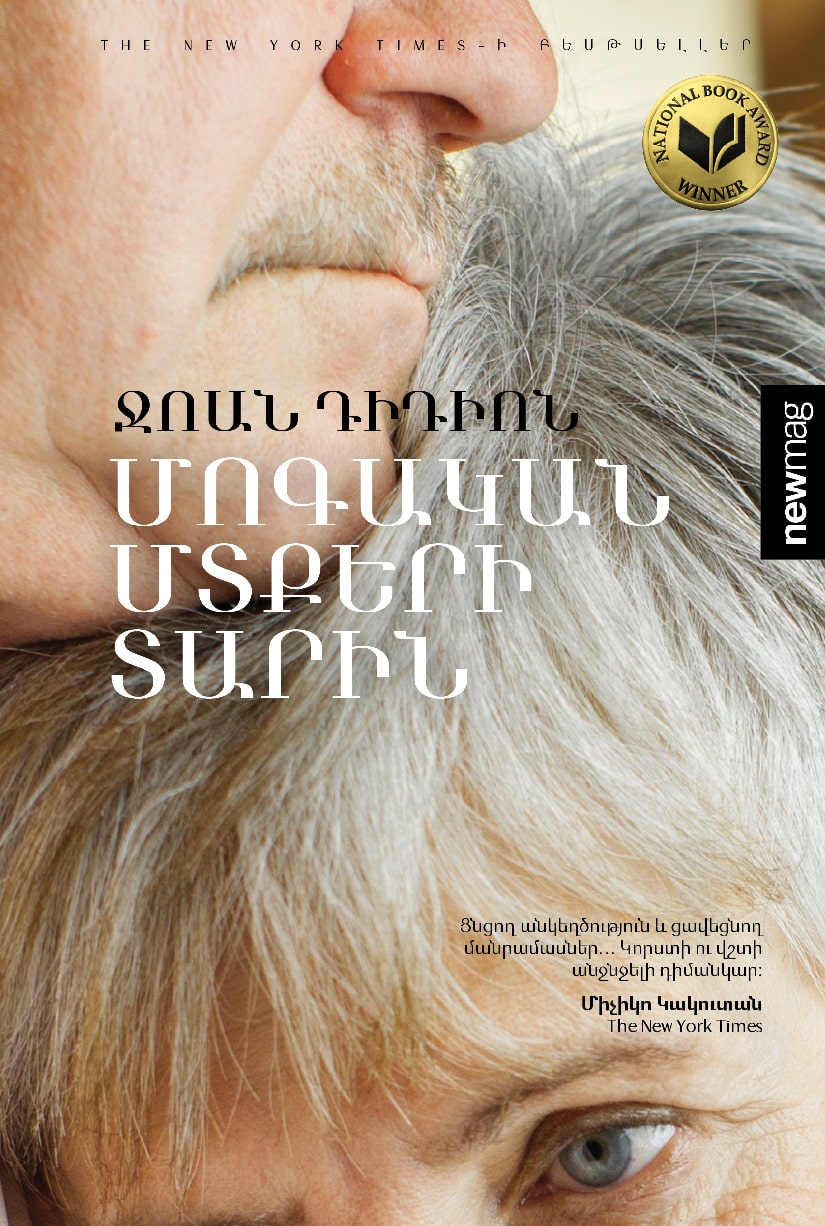The TV Presentation of Joan Didion’s “The Year of Magical Thinking” (Video)
12/04/2024

Newmag Publishing House introduced its latest psychological release, “The Year of Magical Thinking”, on the “Good Morning” program on Armenia TV. This book, written by renowned journalist and author Joan Didion, delves into the emotional journey of coping with the loss of loved ones.
Written during one of the most challenging periods of Didion’s life, when her husband passed away and her daughter fell into a coma, “The Year of Magical Thinking” has earned widespread acclaim. The book has garnered prestigious awards and was listed among The New York Times's 20 Best Books of the 21st Century. The Armenian edition of the book is supported by the Calouste Gulbenkian Foundation.
Anush Sedrakyan, the book's translator, shared her perspective on the difficulty of translating this deeply emotional work.
“Literature from the 20th century is inherently psychological, and translating this book was particularly challenging because it requires immersing oneself in the author’s feelings, experiences, and fragmented consciousness. The author clings to the hope that her husband isn’t dead, that everything can still change.”
Sedrakyan noted that the book reflects the psychological process of grief, often referred to as “grief work.” The Year of Magical Thinking vividly portrays Didion’s journey through the stages of grief, providing insight into how she works through her sorrow by putting her personal experiences into writing.
Joan Didion also references various psychological books and methods, offering a valuable exploration of how grief affects everyone. Her account provides readers with a clear, step-by-step journey of overcoming loss.
Clinical psychologist Marina Ghazaryan, from the Kana Psychological Center, also discussed “The Year of Magical Thinking” in relation to grief and emotional healing. She highlighted the book as a strong example of bibliotherapy, a psychological approach where literature serves as a therapeutic tool.
“In ancient Greek theater, catharsis served as a form of psychological release. People, by observing performances, relived their own experiences. Through literature and film, we gain a small amount of immunity by seeing others' lives and struggles. Joan Didion’s book is a rich portrayal of grief’s stages—denial, struggle, justification, and eventually acceptance.”
The book opens with a detailed description of a family dinner during which Didion’s husband passes away. Ghazaryan emphasized how Didion’s meticulous attention to detail, such as the description of her cutting a salad, enhances the emotional impact of the narrative. The imagery of a family gathered around a fire evokes warmth and the concept of home—key symbols in Didion’s meditation on loss.
The book explores the psychological stages of grief, offering insight into how individuals process and accept loss.
“In post-war times, many soldiers rejected psychologists aggressively, which marks the rejection stage of grief. In the third stage, specialists are crucial to help a person digest their emotions.”
“The Year of Magical Thinking” is available on newmag.am and in bookstores.

Joan Didion
5800 ֏
Description
In this book, Joan Didion tells the story of the most difficult year of her life. A year when her husband, writer John Gregory Dunne, with whom she had lived for more than 40 years, suddenly passed away. The book is a moving memoir about the author's grief, about overcoming loss, understanding what happened, and about the signs that, if noticed, might have prevented it. The author immerses herself in the disorienting and surrealistic experience of loss, reflecting on the rituals and memories that shape our understanding of life and death. The memoir is not only a story of personal tragedy but also a study of grief, resilience, and the power of the human spirit.
Read also

Winterfest to feature David Georgyan’s sci-fi action novel Impedance (trailer)

At Winterfest 2026, Newmag will present Marianna Hakobyan’s “Don’t Change the Names” (trailer)

Closing and Award Ceremony of the “Sprout in Armenian – 2025” Competition at Newmag Winterfest

“I hope my story will inspire many and help them keep believing and dreaming.” Henrikh Mkhitaryan’s welcoming speech to Armenian fans (video)

